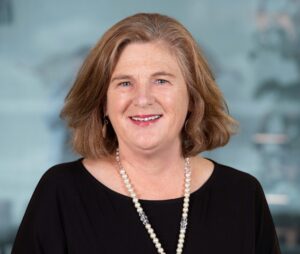
The proposed changes include the easing of English standards, particularly in writing, and introducing an exam and practical assessment rather than relying on credential checks, Nursing Council chief executive Catherine Byrne told Kaitiaki Nursing New Zealand.
“The essence of the changes is that it does align us internationally with other regulators,” said Byrne, citing Australia, the United Kingdom and British Columbia (Canada) as having similar regulatory systems.
Proposed new pre-entry training would focus on Te Tiriti o Waitangi and kawa whakaruruhau (cultural safety) to ensure migrant nurses understood the history behind Aotearoa’s health inequities and “understand how to work safely with tāngata whenua”, consultation documents state. The proposed changes “would ensure IQNs are competent to practise in a culturally safe, competent and ethical manner” and reflected the council’s commitment to Te Tiriti and the role of IQNs in improving health equity for Māori.
Changes ahead
Proposed Nursing Council changes would “move away from assessing our applicants’ nursing qualifications and towards assessing their competence to practise nursing in Aotearoa”.
New exam and practical assessment:
- Instead of checking qualifications, the council would assess competence through a knowledge exam (can be done in home country) and a practical assessment (in Aotearoa).
- New pre-entry education would focus on Te Tiriti o Waitangi and kawa whakaruruhau/cultural safety.
- Competency assessment programmes (CAPs) could change to supporting pre-entry learning and practice for IQNs.
- A period of supervision is proposed to support migrant nurses into their workplace.
English language standard
- The Occupational English Test (OET) would get preferred status, as a “more valid, fairer” English test. Currently, applicants must pass the more academic IELTS (International English Language Testing System).
- Lowering the writing score “will set a fairer standard that is more appropriate to the purposes of nursing practice”. (No changes to the speaking, listening or reading aspects are proposed).
- Previously reluctant, the Nursing Council may recognise electronic language testing using computer-based methods, due to better security for online tests.
Alternate pathways for some countries.
- IQNs from countries with similar nursing regulatory systems, such as the United Kingdom, United States, Canada, Ireland and Singapore, could skip the exam and competence assessments, but still complete education in areas such as cultural safety.
- The council will “in the near future” look at easing barriers specifically to Pacific-trained nurses to work in Aotearoa.
“We are absolutely cognisant of the critical workforce shortages and what we don’t want to be is a barrier to nurses registering.”
Delayed by COVID, Byrne said the council had been working on the proposal since 2018, in an effort to bring Aotearoa into line with international practice and ensure the migrant nurse registration process was not unnecessarily burdensome. “The process of seeking professional registration outside one’s home country can be a costly and difficult exercise, including additional barriers in terms of access and equity,” her proposal introduction states.
The council was highly aware of the need to get more IQNs into Aotearoa amid a pandemic and critical nursing shortage, Byrne told Kaitiaki. But it must balance that against its obligation to uphold high nursing standards.
“We are absolutely cognisant of the critical workforce shortages and what we don’t want to be is a barrier to nurses registering,” Byrne said. “But I guess nurses do need to be able to communicate effectively with patients, with colleagues, with employers and that’s the whole purpose of the English language standards.”
The proposed changes would ensure “robust, equitable” processes by “shifting our focus from credentials and qualifications, to assessing and ensuring nurses are competent to practise in the context of our health system, cultures and communities”, consultation documents state.

Mostly from India and the Philippines, IQNs make up about 30 per cent of the nursing workforce in Aotearoa, council statistics show – and about half of the aged residential care nursing workforce, according to the New Zealand Aged Care Association.
Acknowledging the pressures, Byrne said it was important to remember that the council was continuing to register IQNs, with 2464 registered in the year to March 31. However, she said only about a quarter of those were known to be living in New Zealand – meaning many were potentially unable to reach New Zealand due to border closures.
Reported delays had often been due to the availability of source documents in countries such as the Philippines and India, where infrastructure had been hit hard by the pandemic, Byrne said.
The proposal will now go through a six-week consultation period until May 16 and will likely be phased in during 2023, documents suggest.



